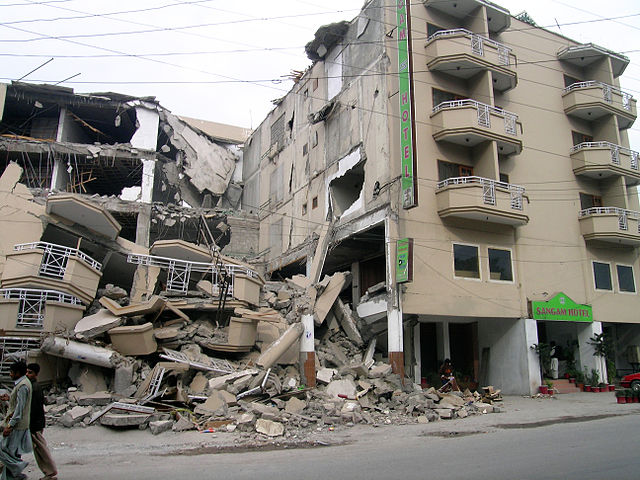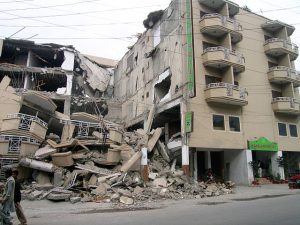
The Orbital’s Hira Tahseen speaks out on her experience as a victim of one of Pakistan’s earthquakes.
It was 8:50am on a Saturday morning, the 8th of October, 2005 in Pakistan when I got woken up by the sound of the bedroom door shaking as if someone was trying to break in. Just as I was about to get up to see who that might be, my mother came running from the other room, crying that it is an earthquake. Then it wa s us on the bed, terrified, holding on to each other tightly and saying our last prayers. An earthquake of 7.6 magnitude shook Pakistan, which although, lasted for seconds, seemed like forever for those who felt it. Yes, we should have ran to a safer place than just sitting on the bed, but at the time we could not think of anything. The Northern areas of Pakistan were affected the most, including Azad Kashmir and Khyber Pakhtunkhwa. The death toll reached above 90,000 and over 138,000 people were injured with 3.5 million people left homeless. Many people are still in the process of recovering from their loss.
s us on the bed, terrified, holding on to each other tightly and saying our last prayers. An earthquake of 7.6 magnitude shook Pakistan, which although, lasted for seconds, seemed like forever for those who felt it. Yes, we should have ran to a safer place than just sitting on the bed, but at the time we could not think of anything. The Northern areas of Pakistan were affected the most, including Azad Kashmir and Khyber Pakhtunkhwa. The death toll reached above 90,000 and over 138,000 people were injured with 3.5 million people left homeless. Many people are still in the process of recovering from their loss.
Ten years later, on the 26th of October 2015, Northern Afghanistan and Pakistan were rocked by a powerful earthquake of 7.5 magnitude. Regions in India also experienced the tremors. The aftermaths of the earthquake included deadly land sliding in Hindu Kush Mountains, Afghanistan and Northern Province Khyber Pakhtunkhwa, Pakistan as many people got trapped and lost their lives. The death toll in Afghanistan, Pakistan and India reached over 360 with most causalities in Pakistan and over 2,000 people getting injured. In Afghanistan, 12 schoolgirls lost their lives after being trampled on by panicked school children.
Nepal also suffered from the worst earthquake in its history with 9,000 people dead and over 900,000 homes destroyed.
This goes on to show that said region has a history of deadly earthquakes due to which many have lost their lives or loved ones. Earthquakes are naturally occur, and therefore not a lot can be done to prevent them. The question that arises is what actions have the governments taken to minimise the damage that the earthquakes cause? Shining some light on the way people died as they were trampled on by a panicked mob clearly shows a lack of public training on how to deal with such emergency situations. Buildings collapsing with millions ending up either homeless or dead under the rubble also shows the lack of efficient infrastructure that can bare the shocks of the earthquake. If the governments in those regions act upon what is needed to be done in order to prevent such great damage, they will need to start right away. Training the whole nation on what to do in a situation like this would in future save more lives. Similarly, a proper infrastructure which can bare such shocks, perhaps the main materials used to build such building need to be changed. Yes, perhaps it will take many years to tackle the issue, at least in long term, our future generations can benefit from it all.
May all those who lost their lives in these earthquakes, rest in peace.
